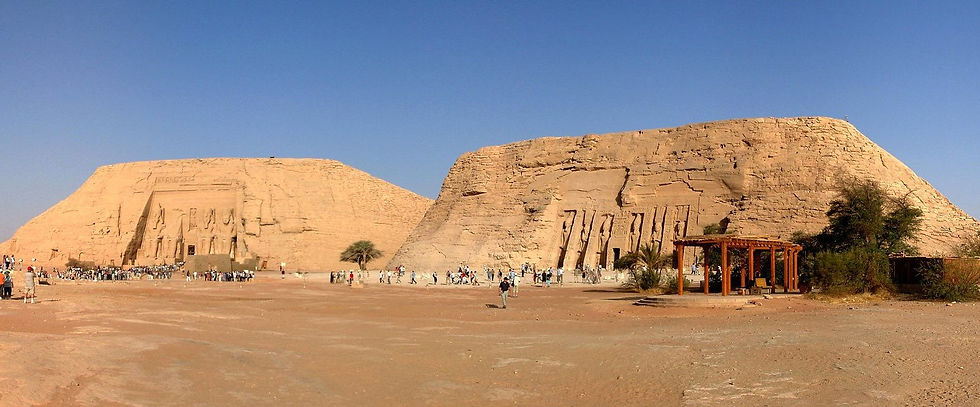Owuo and the Hungry Man
- Christofer Ek

- Oct 24, 2022
- 3 min read

Owuo, the god of death in the Asante and Akan mythology, has often been depicted as a terrifying giant with hair all over his body and a single blinking eye on his forehead. He had long white hair on top of his head that could stretch all the way from Krachi (East Ghana) to Salaga (North Ghana), a distance covering ca. 125 kilometers. To the Krachi people of East Ghana and Togo, Owuo has always been portrayed in this way. However in the Asante (south Ghana) and Akan mythology, the adinkra symbol depicting a ladder was used instead. The ladder symbolizes death, fate and the mortal nature of man. The Akan translation of the ladder is ‘Owuo Atwedee’, which means Ladder of Death. It’s due to these similarities that Owuo was named the way he was and why they used the symbol of a ladder to depict him. In the book ‘A Dictionary of African Mythology’ by Harold Scheub, the story about Owuo is quite a gruesome one. It begins with a young man who leaves his home in search of food in a world struck by famine. One day he walks upon a giant who is sleeping in the countryside and asks if it has any food to spare. The giant introduced himself as Owuo (Death) and said that he would share his food, but only if the man stayed in his servitude for a period of time.
The man happily agreed to the giant's request and ate the best meat he had ever had in his entire life.
After a few years, the man was allowed to return to his home but only if he promised to bring someone else who can serve in his stead. Smiling, the man hurried back home and convinced his brother to journey to the countryside and work for Owuo. As time went on, the man felt the hunger returning to him, and so he ventured back to Owuo in hope of getting more food. The giant told him that he would gladly share more of his food, but only if he promised to bring back a woman for him to marry. The man accepted the giant's request, ate the meat and hurried back home. There he convinced his sister to marry the giant, and so she and her maid journeyed to the countryside where the giant was waiting for her.
It didn't take long, however, before the man got hungry once again and decided to return to the giant for more food. Tired of getting interrupted by the man, the giant told him that he would allow him to eat the food one last time. Inside the cabin, where the giant stored his meat, the man found a single bone that still had some meat left on it. Wondering where the bone came from he began investigating the area and discovered the remains of both his siblings and the maid. Terrified, the man ran back home to tell his countrymen of what he had experienced and together they decided to kill Owuo.
When the townsfolk reached the home of the giant, they were all struck with fear when they saw the massive size of him. After some discussion, they decided to ignite the giant's long white hair and watch him burn to death at a safe distance. Owuo, who was unaware of what was going on, had no chance of fighting back. When the fire reached his head, the giant fell to the ground and burned to death on the spot. The man searched Owuo’s body and found medicine that had been hidden along the scalp of his head. They sprinkled the medicine on the remains of the man's siblings, which brought them back to life. Feeling bad for his betrayal, the man wanted to pour the medicine on the giant as well, but since the countrymen were afraid of him, the man was only allowed to pour it onto his single large eye. The eye flew open, stared at the people around it and then started to blink. With each blink, a man died, and so the countrymen fled back home in terror.
It is said that every time Owuo blinks with his eye, a man dies. And if the story is to be believed, Owuo still remains in the countryside, blinking with his eye until all humans have perished from the Earth.
Text & Image: Christoffer Ek. MENAM Archaeology. Copyright 2022.
Further reading:
Scheub, H., 2002. A dictionary of African mythology. [Oxford]: Oxford University Press.





Comments